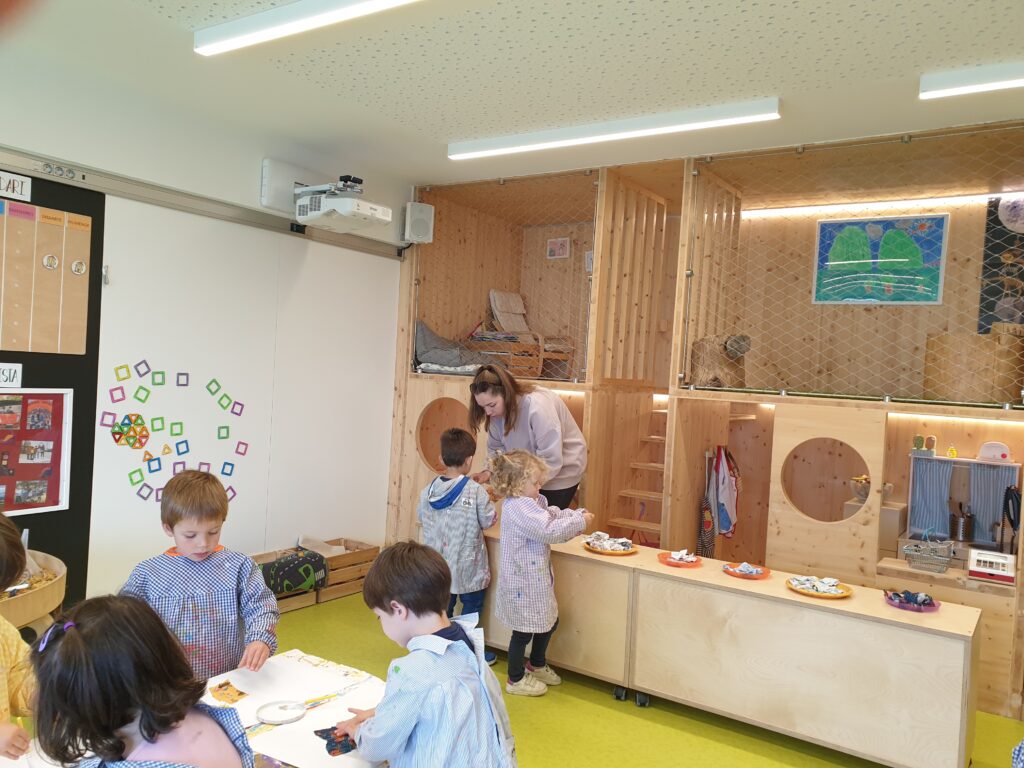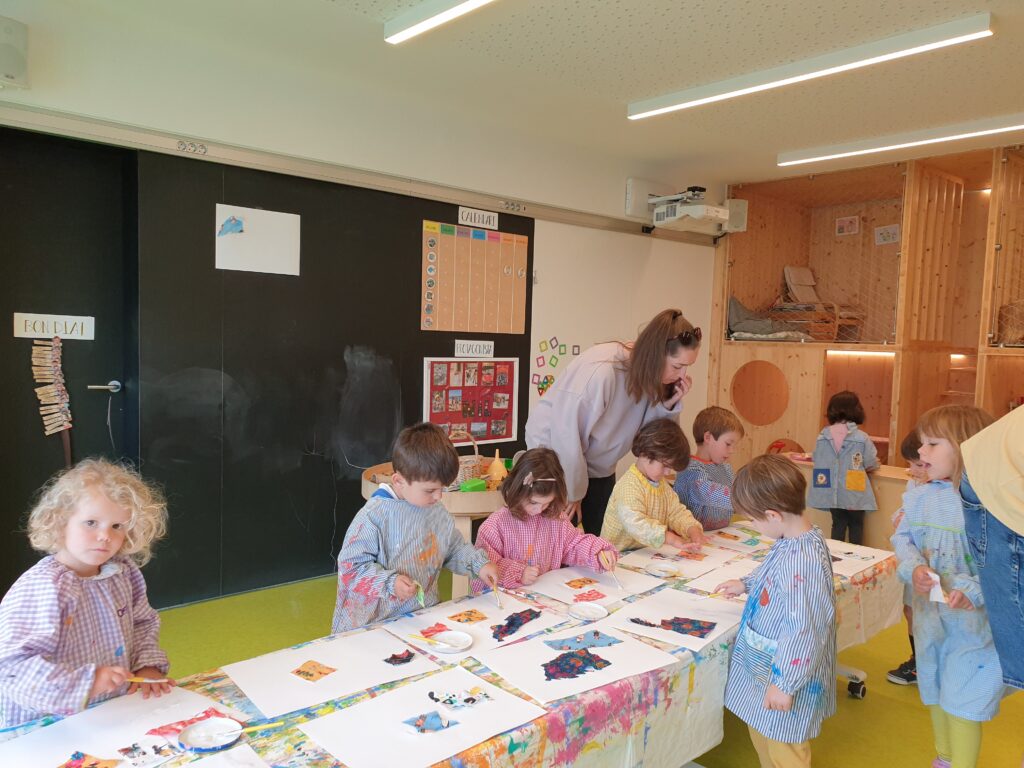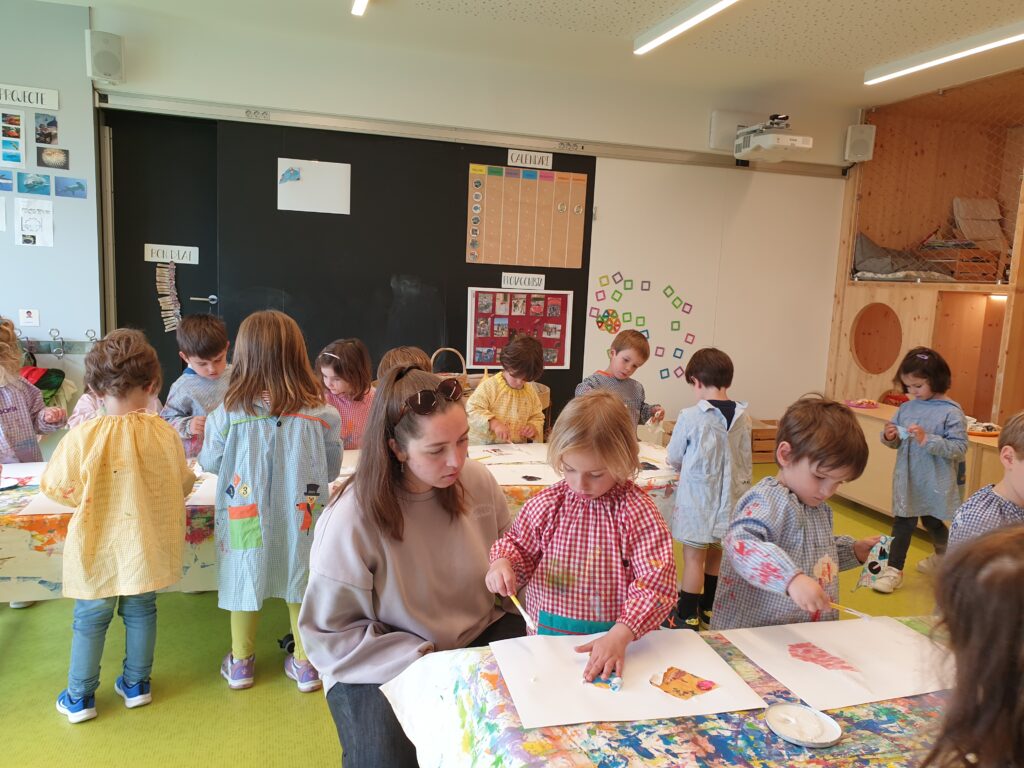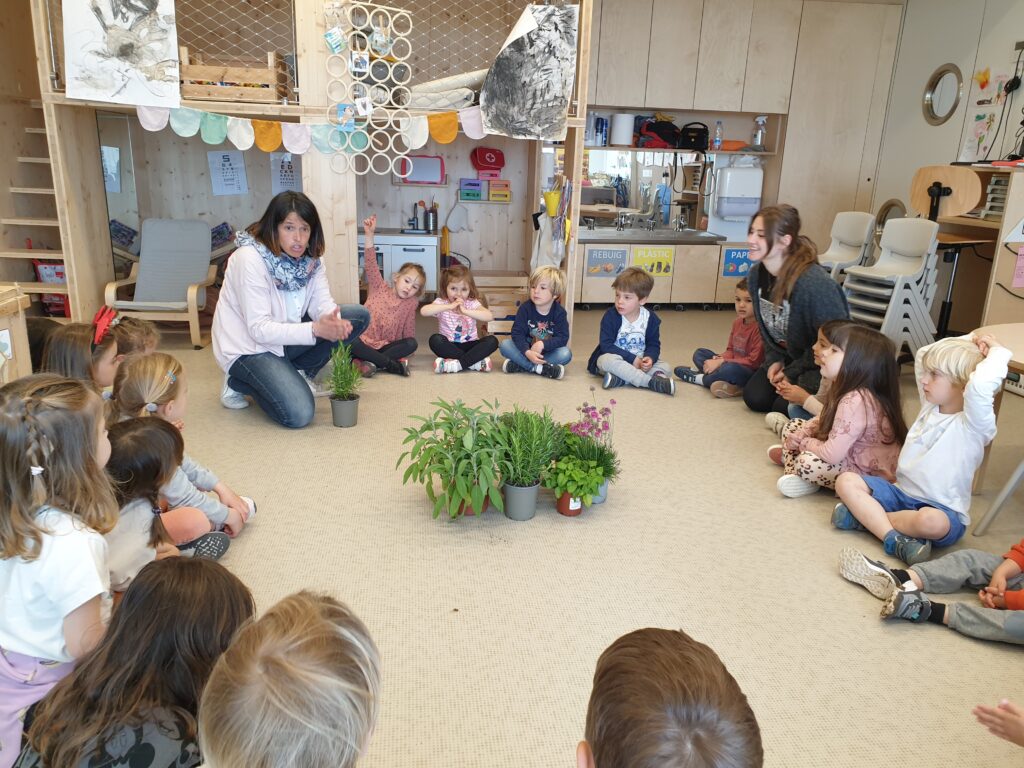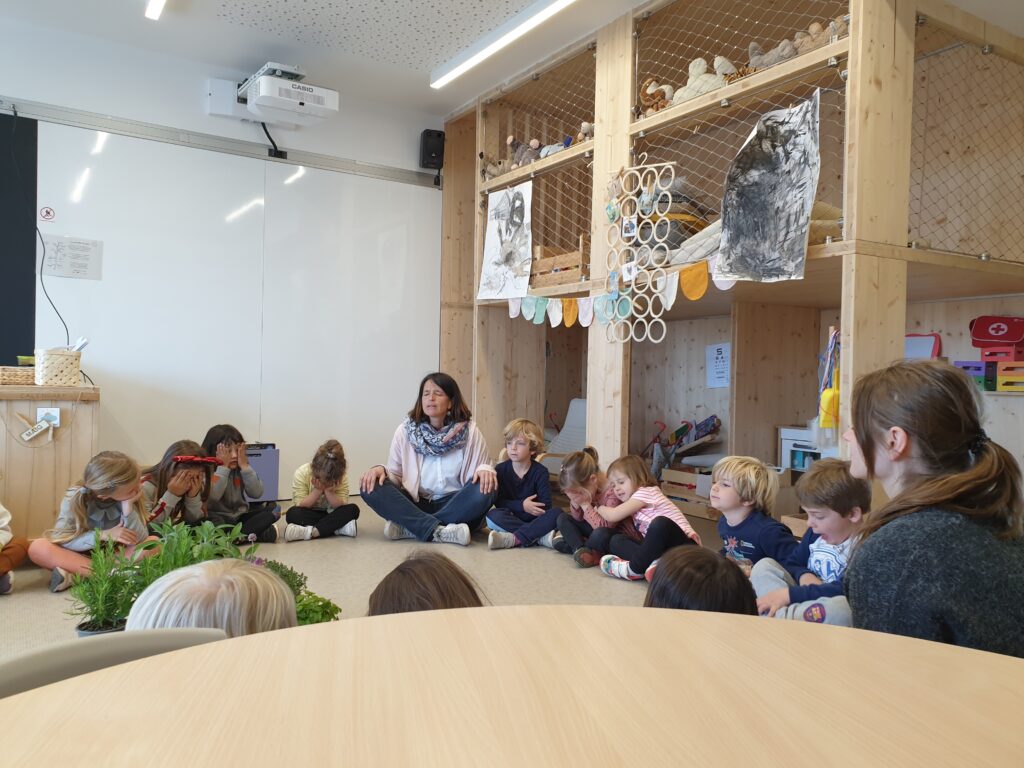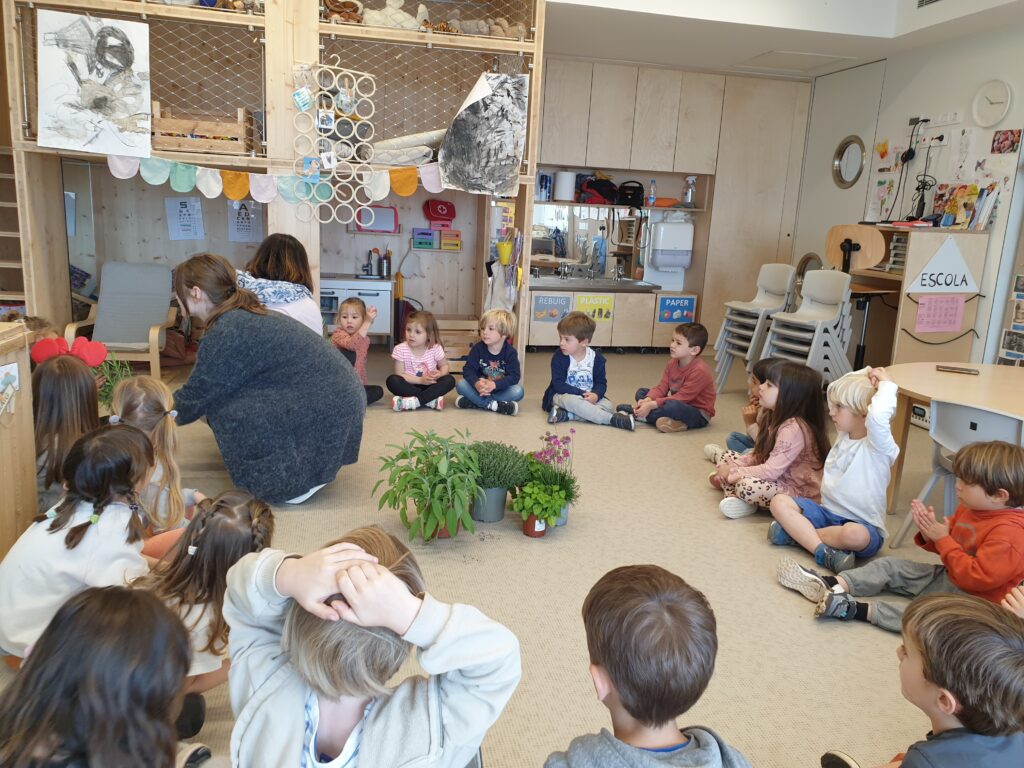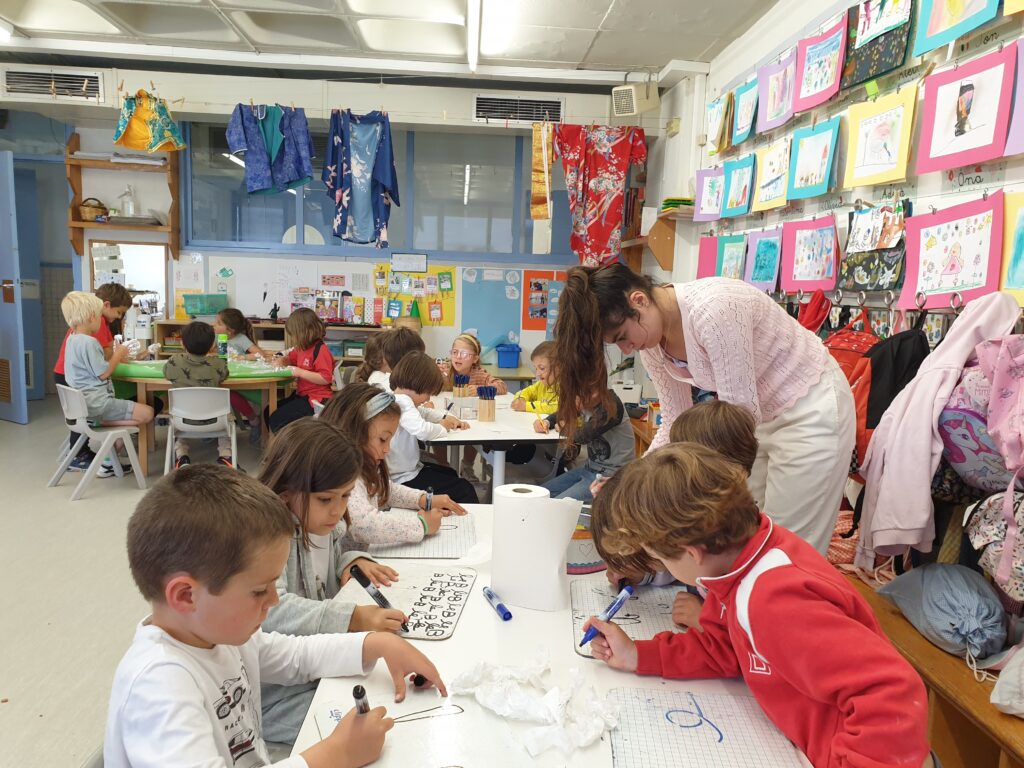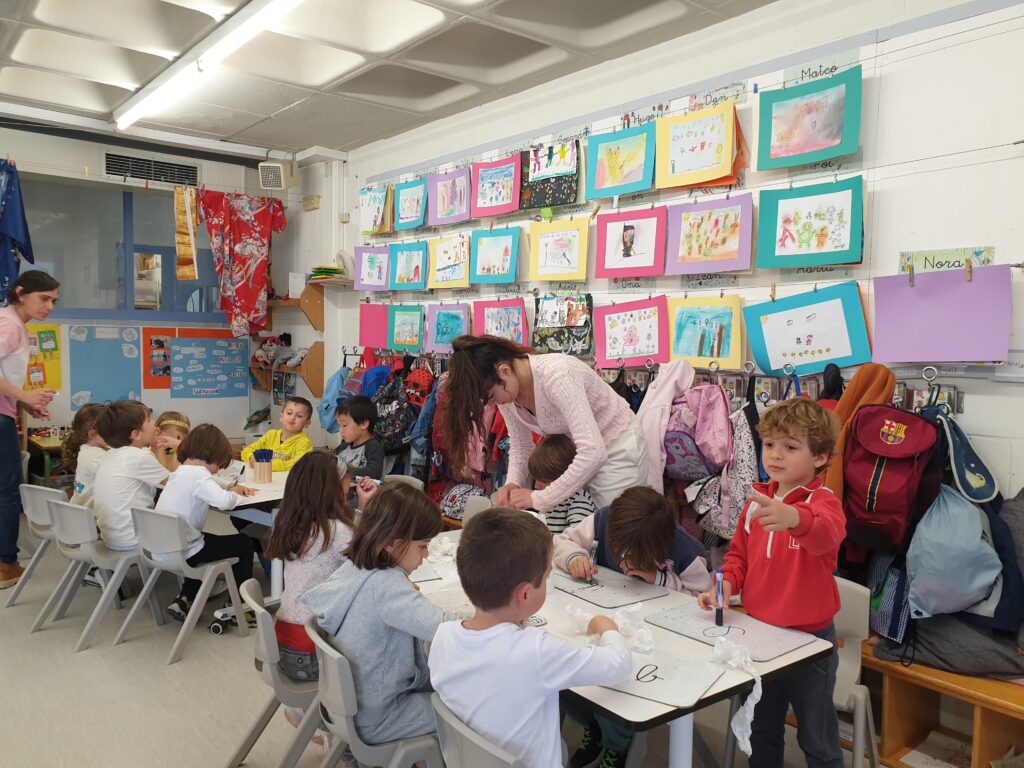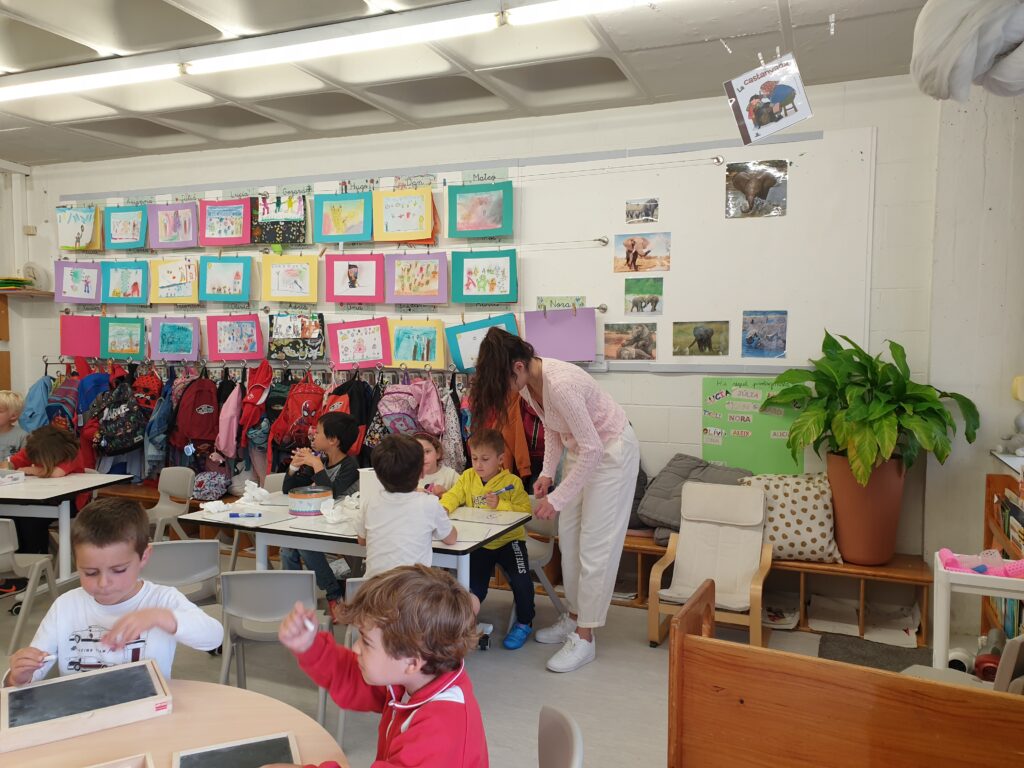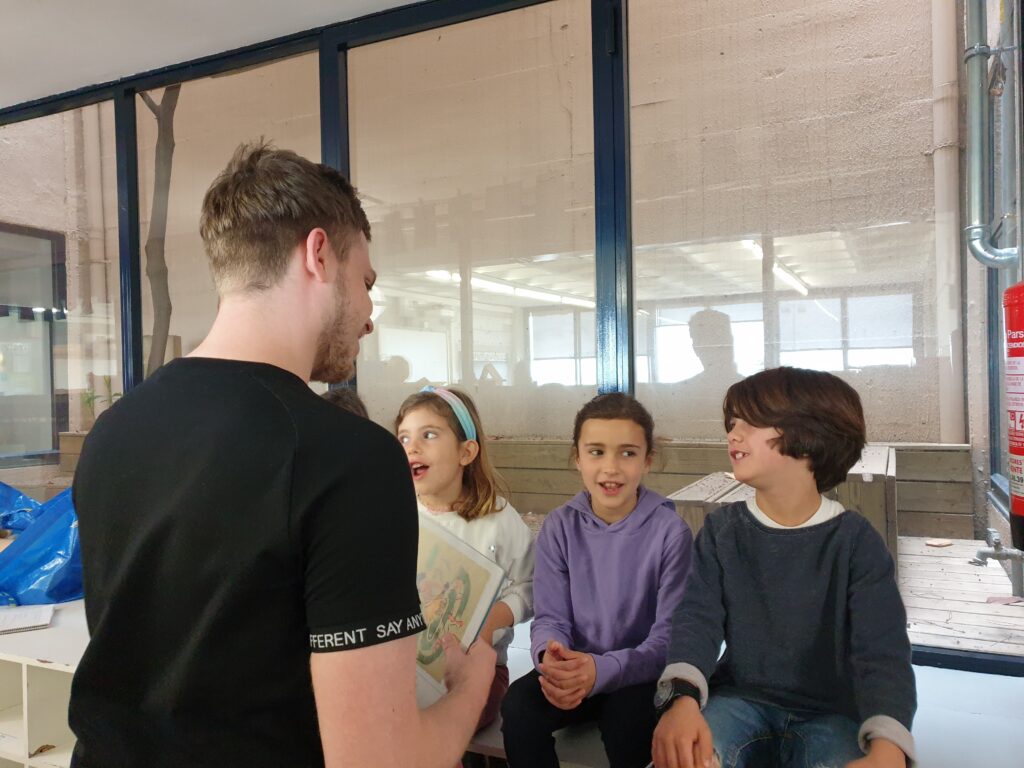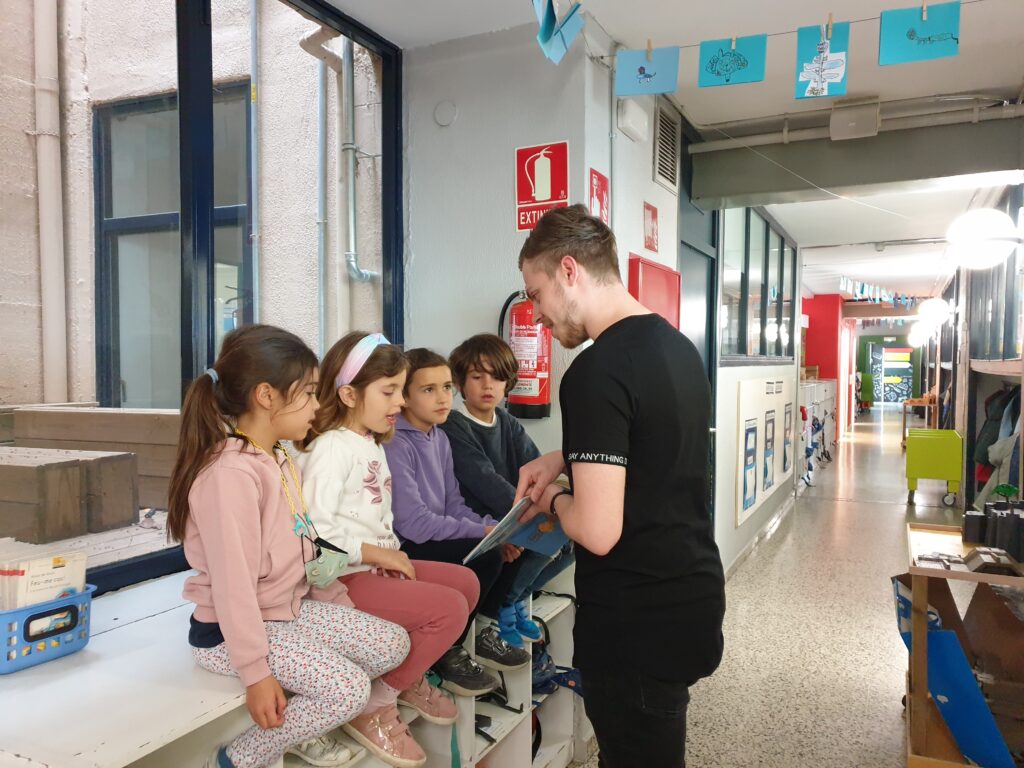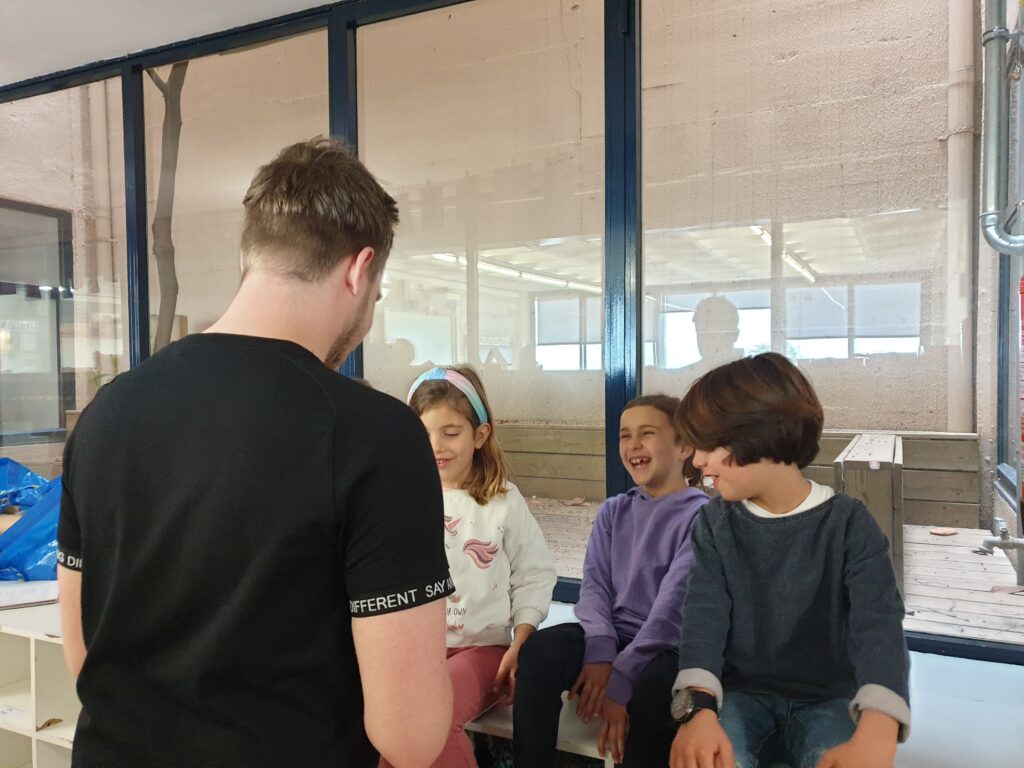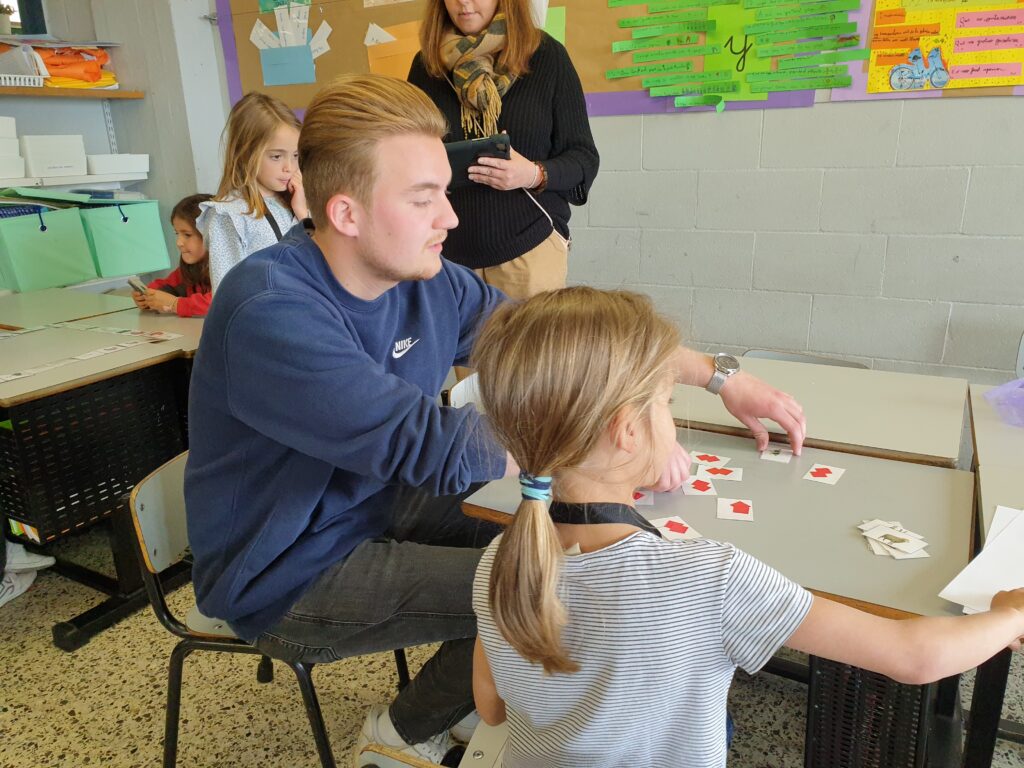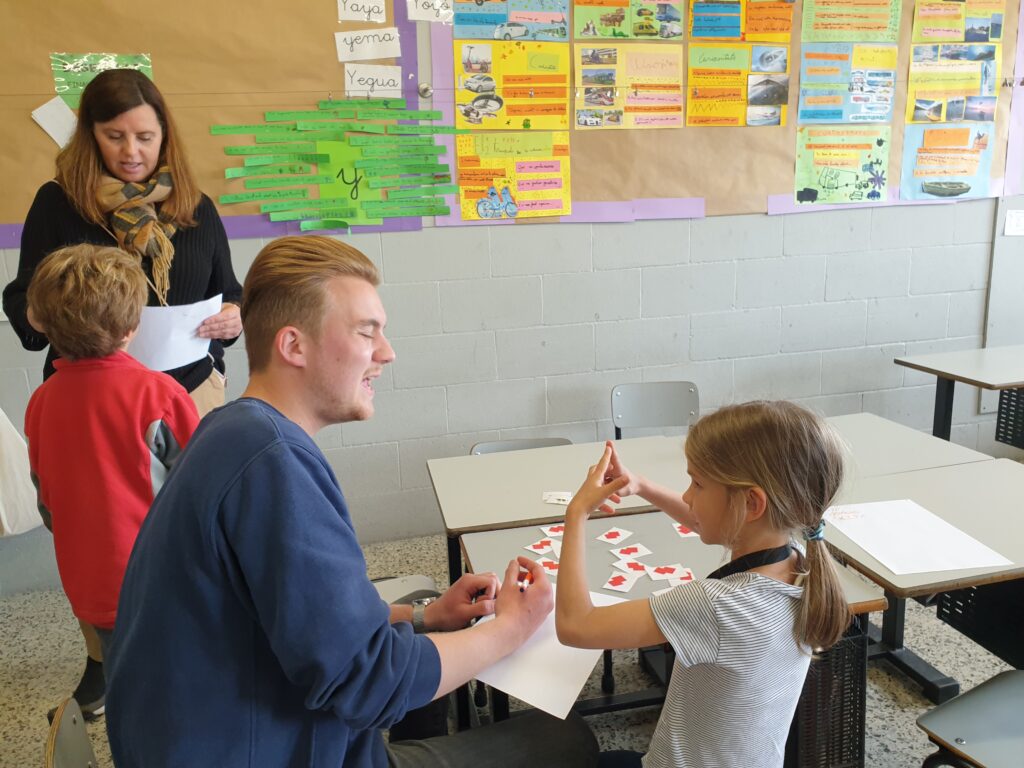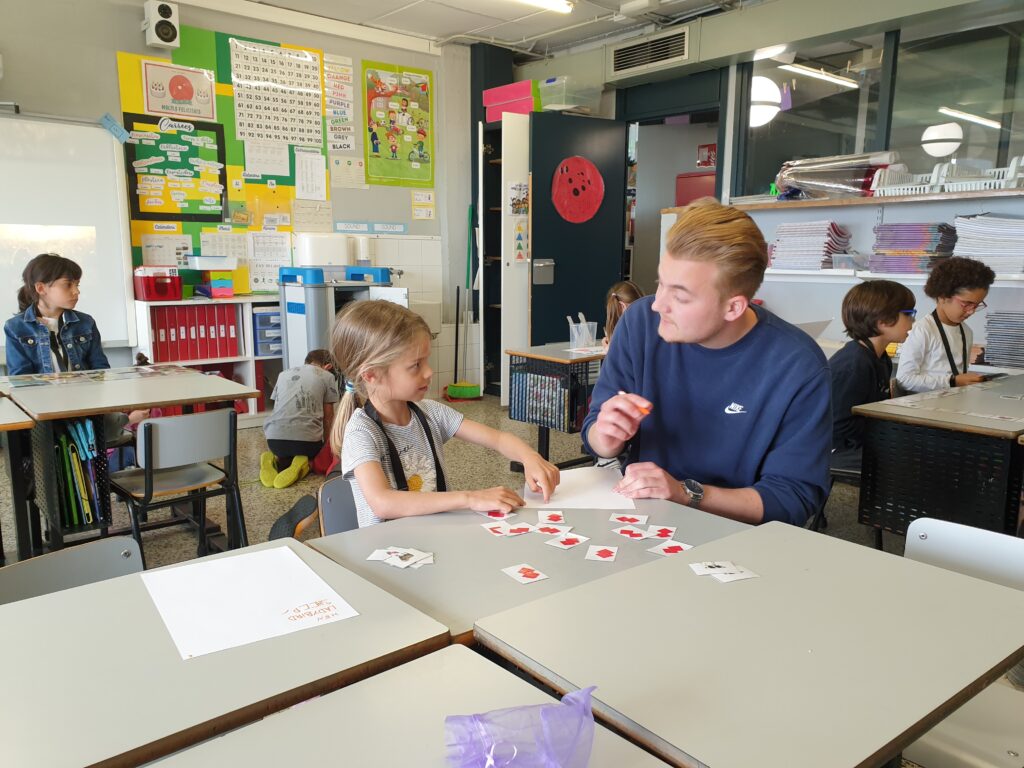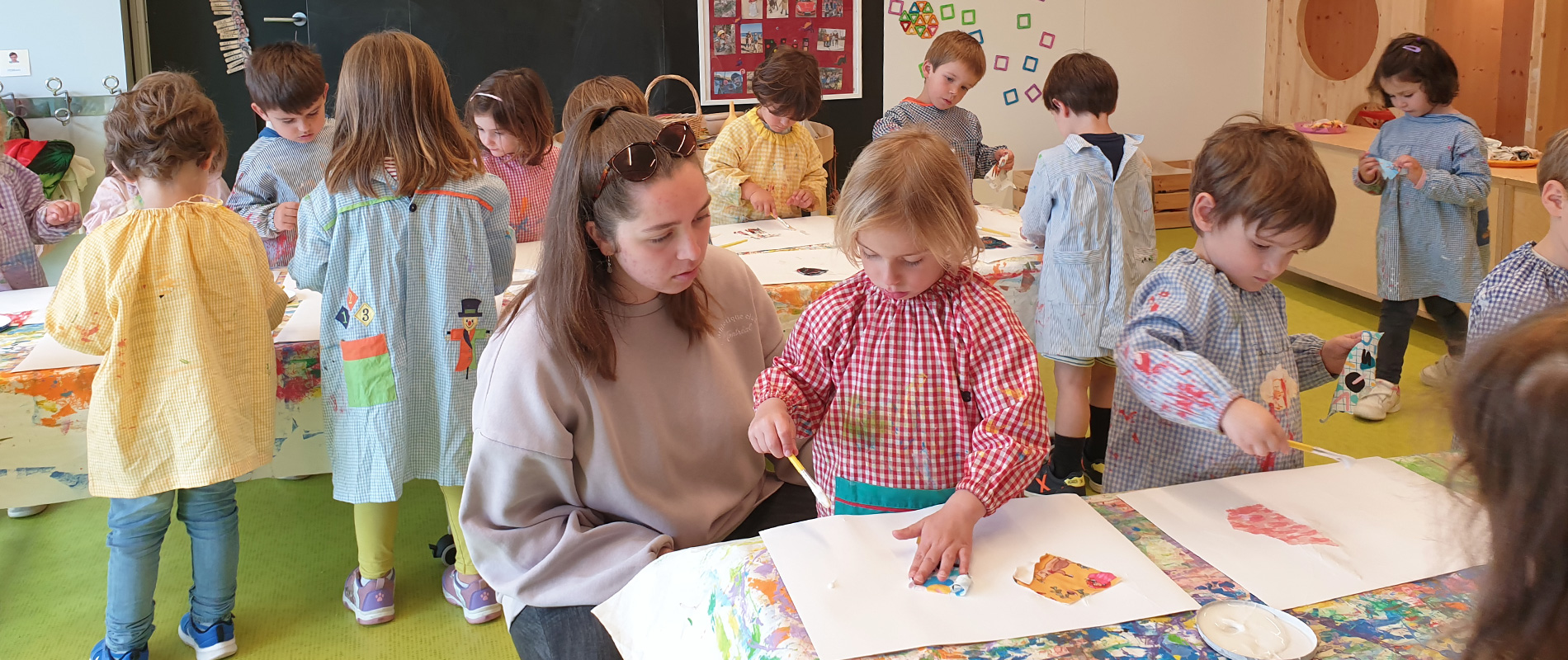
Durant dues setmanes, hem tingut amb nosaltres un grup de cinc estudiants alemanys d’un centre de Formació Professional d’Hamburg, l’Euro Akademie Hamburg, que, a través d’un programa d’intercanvi Erasmus, han vingut a fer uns dies de pràctiques amb nosaltres.
En Jonas, la Fatma, en Mark, la Dilara i la Leonie s’estan preparant per ser mestres de llar d’infants o d’Infantil, i han estat amb classes de P3, P4, P5 i 1r de Primària de l’escola per veure com treballem.
Abans no marxessin cap a Hamburg, hem parlat amb ells i elles de la seva experiència amb nosaltres i això és el que ens han compartit:
What are you studying in Germany? / Què esteu estudiant a Alemanya?
Being teachers in schools and kindergartens. We will become nursery teachers. We are studying everything related to puericulture. / A ser mestres en escoles i llars d’infants. Esdevindrem mestres d’Educació Infantil i estem aprenent tot allò relacionat amb la puericultura.
Why have you decided to come to Spain? / Per què vau decidir venir a Espanya?
To get to know a different culture and different teaching methods for children. / Per conèixer una cultura diferent i altres metodologies d’ensenyament.
And to our school? / I a la nostra escola?
We only have two options and our teacher recommended us to choose this school. / Només teníem dues opcions i la nostra professora ens va recomanar de venir aquí.
What do you expect to learn? / Què esperàveu aprendre?
We expect that the language would not be a barriere and that we can talk to children in their own language. Also we want to learn how teachers here work with children and the differences between here and Germany. / Esperàvem que la llengua no fos una barrera i que poguéssim parlar amb els nens i nenes amb el mateix llenguatge. També volíem veure com treballen els mestres d’aquí i les diferències amb Alemanya.
Do you find the education here very different from where you come? / Trobeu l’educació d’aquí molt diferent de l’alemanya?
First of all, in Germany we have students of different ages at the same time: from one and two years old to three or four years old. / Abans que res, a Alemanya tenim alumnes de diferents edats alhora: d’un i dos anys a tres o quatre anys.
At the same time, a big difference is in the proximity and physical contact with the children. In Germany, it is not allowed to invade interpersonal space or to show affection towards children. So we would say that, at first, the closeness you show with them here was a surprise for us; but we realised that it is a cultural difference! / Alhora, una gran diferència és en la proximitat i el contacte físic amb els nens i nenes. A Alemanya no està permès envair l’espai interpersonal ni tenir mostres d’afecte amb els infants. Per tant diríem que, al principi, la proximitat que mostreu amb ells aquí ens va sorprendre; però ens hem adonat que és una diferència cultural!
Do you think it is helpful having children of different ages in the same class? / Creieu que ajuda tenir alumnes de diferents edats a la mateixa classe?
I think that smaller ones can learn from older ones and it is helpful. Here two days a week you do the same and we think it is very helpful and amazing. / Crec que els més petits poden aprendre dels més grans i és útil. Aquí, dos dies a la setmana, feu el mateix i creiem que és molt útil i sorprenent.
And what about the children? Are they very different from Germany? / I els infants, són molt diferents dels alemanys?
Here they are much more autonomous. 4-year-olds, for example, are much more self-sufficient than 5- and 6-year-olds there. Here they start learning before; there they play more until they are six years old. / Aquí són molt més autònoms. Els nens i nenes de 4 anys d’aquí, per exemple, són molt més autònoms que els de 5 i 6 anys d’allà. Aquí comencen els aprenentatges abans, aprenen jugant, no només juguen com allà.
They behave very well, they are really open minded. They really want to communicate. First we were like “we do not really know when they want to communicate with us, if that is impossible.” And even if they do not understand us they really want to communicate. / Es comporten molt bé, tenen una ment molt oberta. Tenen moltes ganes de comunicar-se. Primer vam dir “no sabem realment, quan volen comunicar-se amb nosaltres, si això és impossible”. I encara que no ens entenguin, tenen moltes ganes de comunicar-se.
And the teachers do a very good job here. / I els mestres fan una molt bona feina, aquí.
What would you say to some other student who asks you about this experience? / Què li diríeu a un estudiant que us preguntés per aquesta experiència?
Do it! I really would not miss this experience, now. It has been really helpful for me and for my work. I really do think that I have learned a lot here. So I would recommend it to everyone. / Feu-la! Realment no em perdria aquesta experiència, ara. Ha estat molt útil per a mi i per a la meva feina. Realment crec que aquí he après molt. Així que el recomanaria a tothom.
Do you think that you can export some of the experiences to Germany? Creieu que podreu exportar alguna d’aquestes experiències a Alemanya?
Yes. / Sí.
S’acomiaden amb una reflexió final: “not only the children have learned from us, but we have learned from them. And everything we have learned, both the more positive part and the more negative part, we will know how to transfer it to the work we will do in Germany. It is, therefore, an unforgettable experience from which we will know how to apply the positive part of what we have learned”. / “no només els nens i nenes han après de nosaltres sinó que nosaltres hem après d’ells. I tot el que ens enduem, tant la part més positiva com la part, entre cometes, més negativa, sabrem com transportar-lo a la feina que farem a Alemanya. És, per tant, una experiència inoblidable de la qual sabrem canalitzar la part positiva d’allò que hem après.”

